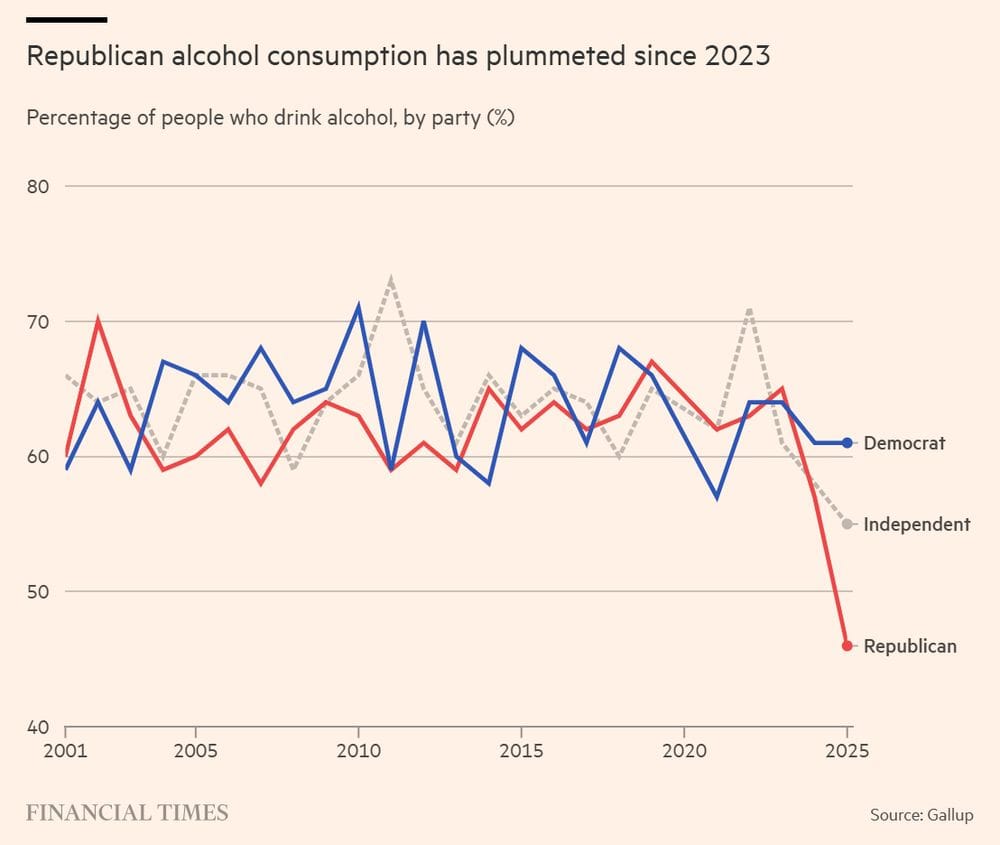- Fingers
- Posts
- The "neo-Prohibition" threat nobody is talking about
The "neo-Prohibition" threat nobody is talking about
Plus: The Cracker Barrel playbook is the Bud Light playbook!

Earlier this month, Gallup released its annual poll about self-reported alcohol use. The headline data point was that fewer Americans than ever before say they’re drinking: just 54%, “the lowest by one percentage point in Gallup’s nearly 90-year trend.” As I wrote briefly in The Weekender, the polling firm’s survey is a useful data point, but it is hardly comprehensive. Among other shortcomings, it depends on people honestly accounting for their drinking habits, a notoriously unreliable premise. (What do you tell your physician when she asks?) So if you come across headlines framing these results as a direct proxy for actual consumption, take them with a big grain of margarita salt.
Still, we can learn plenty about what Americans say about their drinking. For my money, the most interesting demographic snapshot in Gallup’s poll was its breakdown of partisan preference. The Financial Times thought likewise, noting (emphasis mine):
Just 46 per cent of Republicans reported drinking this year — a decline of almost a third from 2023. The share of Democrats who drink fell by only 5 per cent over the same period.
The venerable pink sheet charted Gallup’s data on the parties’ partying habits. That 19% nosedive Republicans’ self-reported drinking took in the past year is pretty stark:
The FT’s Clara Murray contextualized Republicans’ astonishing drop in self-reported drinking by highlighting GOP figureheads at the nexus of the MAGA and temperance movements: RFK, Jr., Tucker Carlson, Charlie Kirk, and of course Trump himself.3 The latter is famously sober, so that’s not really a new factor since 2023, but it’s plausible that foregrounding “Make American Healthy Again” in his campaign and putting Bobby Brainworms in charge of the Department of Health and Human Services (HHS) in his administration may account for some of this shift. That context is important. But I think the decline runs much deeper than that. Having recently fixated on the perceived “neo-Prohibitionist” ambitions of small-l liberal institutions and Democratic regulators, the trade overlooked foes on America’s right wing for years. But that latter movement’s cultural and political power has only grown since. Now, it threatens to spiral beyond the industry’s ability to contain it.

Reply